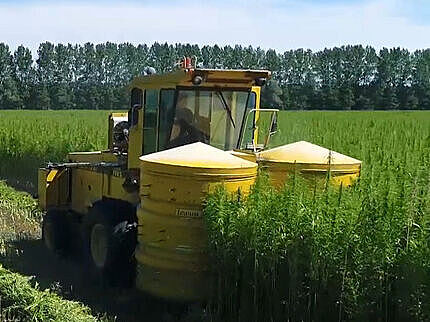The overall objective of the project is to make a substantial contribution to the establishment of a bio-based economy and thus to knowledge- and innovation-based structural change in the north-eastern region of Mecklenburg-Vorpommern. This should serve as a role model for the sustainable transformation of rural areas. The project idea is based on the fibre pulping of hemp straw, which is only economically viable even on an industrial scale if all material fractions, in particular the shives, are also refined and thus used as a material.
While the fibre pulping process itself has been technically mastered and the plant technology is fully developed, there is still a need for research and development in the area of further processing of the shives. Due to the high demand (required realisable mass flows) and their ecological relevance, building products represent an interesting market segment here.
Modern timber construction requires panel materials with a structural load-bearing effect for diagonal/surface stiffening of stud walls, ceilings and roof surfaces. Currently, wood fibre boards (OSB or MDF) or construction plywood boards containing 8 - 12 % synthetic adhesives are primarily used for this purpose. Due to the adhesive content, the biological safety of these boards is controversial and they are hardly ever recycled, but are mainly thermally recycled in special waste incineration plants. Structurally load-bearing, building biologically safe and fully recyclable or compostable boards, whose production and recycling process can be integrated into regional recycling management systems, are not yet available on the building materials market worldwide.


